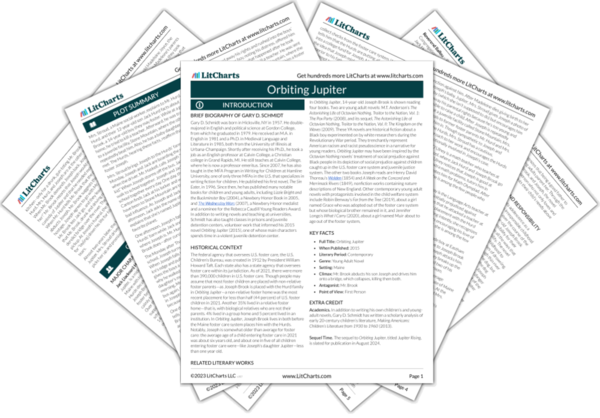Mr. Haskell was “a jerk” to Joseph, but Mr. Canton—who calls Joseph “Mr. Brook” in an emotionally distancing, disdainful way—blames Joseph for his disagreement with Mr. Haskell without asking what actually happened. When Mr. Canton jumps to the conclusion that Joseph was at fault, it shows his prejudiced assumption that Joseph is a troublemaker. Meanwhile, when Joseph keeps the book
Octavian Nothing, it hints that he likes to read—counter to stereotypes about “troublemaking” boys.
